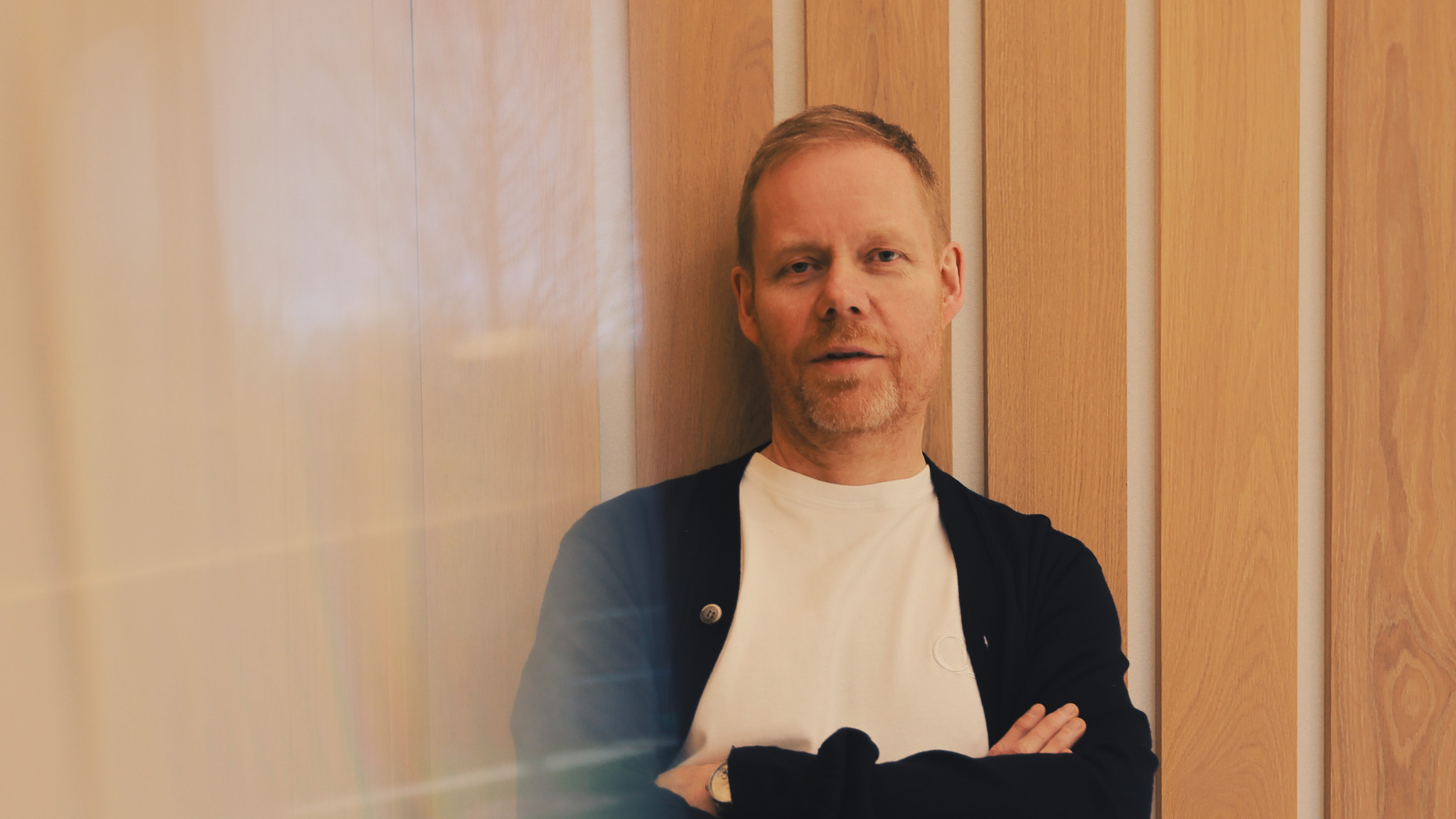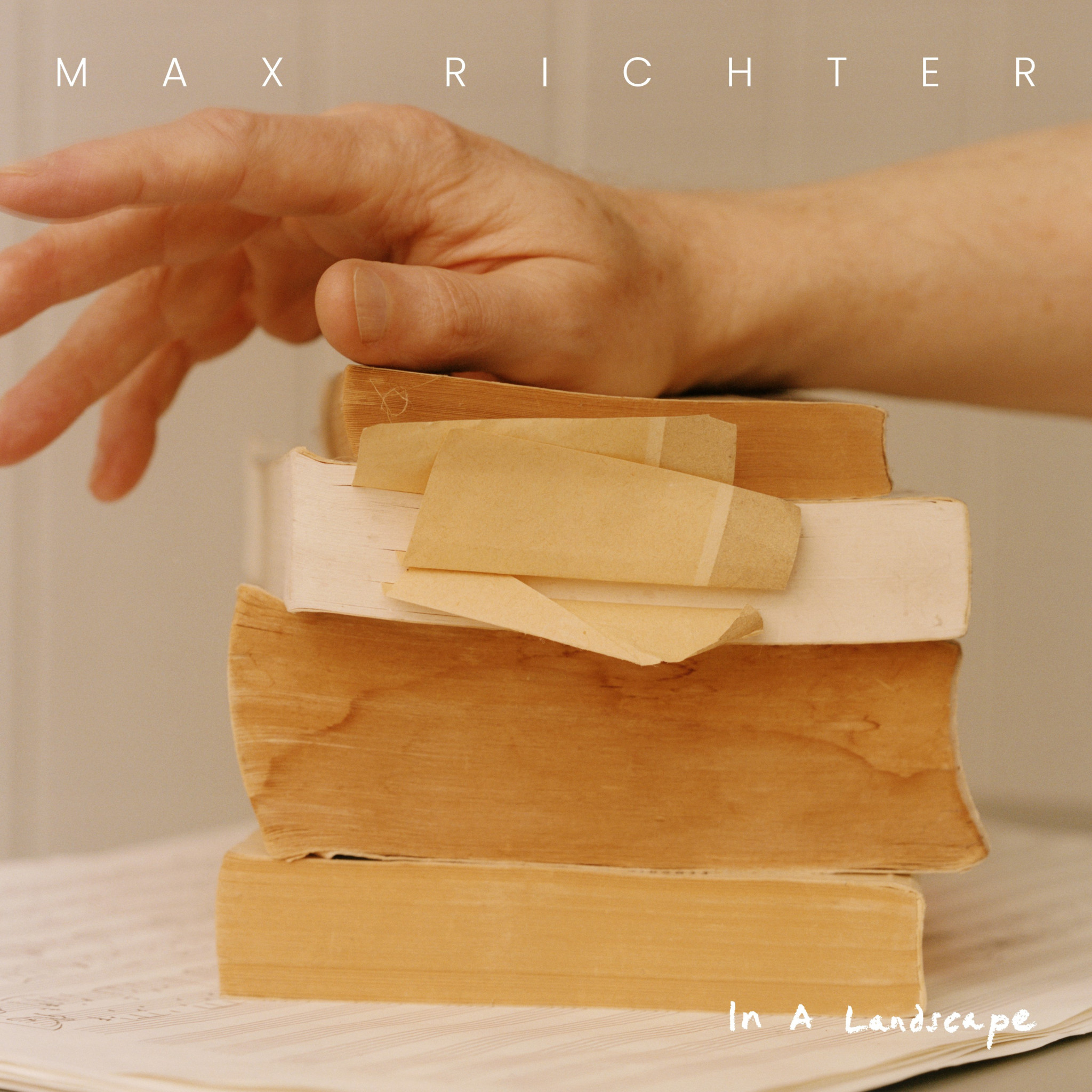“For me, the music on the record is about connecting or reconciling polarities,” states Max Richter about his new album, In A Landscape. “The electronics with the acoustic instruments, the natural world with the human world, and the big ideas of life with the personal and intimate. This is a dynamic I started to explore in my 2004 record The Blue Notebooks, and the new project shares many of that album’s concerns; in a way this record is another look at the themes of the earlier work, but from the perspective of our world and our lives in 2024.”
It was actually on Richter’s debut album, 2002’s Memoryhouse, that the composer first combined shimmering electronic compositions and field recordings with the stirring sounds of the BBC Philharmonic Orchestra—and also where he first delved into his personal childhood memories, presented poetry by Marina Tsvetaeva, John Cage and political refugee Edmond Jabès, and offered several sombre tracks—"Sarajevo," "November," "Arbenita," and "Last Days"—that directly referenced the Kosovo conflict of the late 1990s.
The album inaugurated a musical aesthetic and set of personal themes—the personal, the poetic, the political—that have since come to define Richter’s work, and which were indeed present again on his tour-de-force follow-up, 2004’s The Blue Notebooks. In many ways an extension of Memoryhouse, that album famously featured Tilda Swinton reading from Kafka's The Blue Octavo Notebooks as well as a political poem by Polish-American Czesław Miłosz called “Shadow Journal” that served as a scathing comment on the Iraq war; it firmly established Richter as a serious and unique composer.
“We recorded the strings on the record a week after the February 15th 2003 anti-Iraq war march,” Richter explained in a track-by-track analysis for Drowned in Sound. “The Miłosz text I used speaks of the destruction of “…cities on a distant plain…” and it seemed to me to be utterly necessary to be saying something about what was going on in the world. Where has all the protest music gone? Where are the musicians willing to stand up and be counted? And I wanted, after my own childhood, to talk about the repercussions of violence—and the memories we hang onto: those indistinct, uncertain, untouchable memories.”
His achingly beautiful third album, 2006’s Songs From Before, took the topic of memory into a more electronic and intimate place. Featuring fellow musician Robert Wyatt reading texts by Japanese author Haruki Murakami, the recording gently unfurls like a wistful, ghostly dream, or a soundtrack to a nostalgic movie. In 2008, Richter worked on a real soundtrack, following a personal request from director Ari Folman to score the latter’s 2008 animated documentary about the Lebanon war, Waltz with Bashir, a political film about memory and war; the score earned Richter the European Film Academy’s Best Composer Award.
Richter’s 2010 album Infra, was also a soundtrack—to a choreographic work commissioned by the Royal Ballet that was in turn inspired by T.S. Elliot’s The Wasteland, although Richter made its central theme the 2005 terrorist bombings in London. In 2017, he indulged his love of literature with Three Worlds: Music from Woolf Works, merging classical and electronic sounds with an original voice recording of Woolf herself, and on 2020’s Voices, a collaboration with visual artist Yulia Mahr, he drew on the Universal Declaration of Human Rights and introduced the concept of the 'upside down' orchestra to reflect his dismay at post-truth politics.

2021’s Exiles was perhaps the composer’s best-known political work. Expanding on a ballet piece composed for Sol León and Paul Lightfoot’s Singulière Odyssée at the Nederlands Dans Theater, this album became a response to the tragic 2015 sinking of an overcrowded migrant vessel off the coast of Libya in which at least 700 migrants, including many children, perished. “I was trying to get away from the political, the language of conflict, finger-pointing, and name-calling to get to the heart of the emotional question, which is really a basic human matter of compassion,” he told Composer Magazine. He also added: “Nina Simone has this line where she says it's an artist’s duty to reflect the times they live in… It seems obvious to me that, just as we talk about things that are happening and watch the news, it's reasonable for creativity to engage with that process. It's another way to try and understand what's happening.”
In A Landscape continues this rich tradition, exploring themes of optimism and human emotion and bringing together the electronic and the acoustic, the human and the natural world—the big questions of life and the quiet pleasures of living. It also features his by-now familiar blend of electronic sounds and field recordings and seems to bring his remarkable career full circle—making it a perfect moment to remember how it was Richter who took classical music into realms it had not previously been and paved the way for others to do the same, all the while not giving up on his life-long passions and his quest for a better world.
by Paul Sullivan


